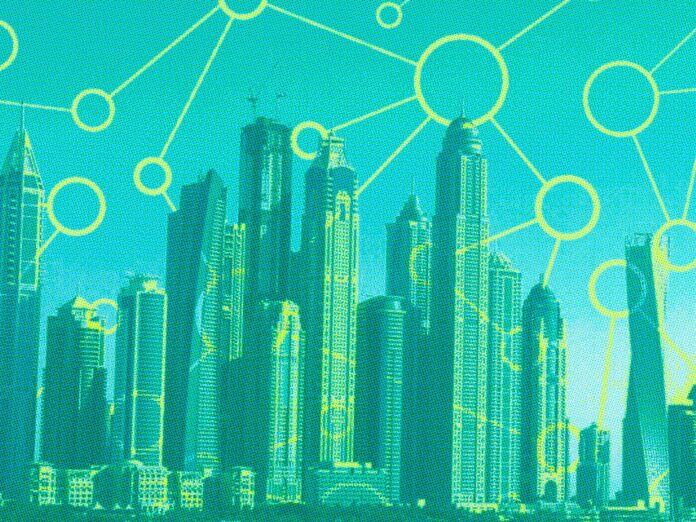
In recent years, the pressing global concern for environmental sustainability has paved the way for transformative technologies in the smart city landscape. From the 15-minute cities concept to an increased focus on constantly improving quality of life via collecting and analyzing numerous pieces of information from smart devices, interest in smart cities continues to grow globally.
Smart Gas Meters
Traditional gas consumption tracking lacks real-time monitoring, leading to inefficiencies and waste. By integrating smart gas meters into the infrastructure, cities can ensure precise monitoring, efficient billing, and timely leak detection.
Smart gas meters enable residents and businesses to proactively monitor their gas usage, encouraging them to adopt more sustainable practices. This technology ensures that resources are used efficiently, minimizing the carbon footprint, and contributing to a cleaner environment.
Smart Electric Meters & EV Charging Stations
As electric vehicles (EVs) and micro-mobility services gain popularity, the need for an extensive charging infrastructure becomes critical. Household-level smart electric meters and EV charging stations connected to the various levels of the power grid offer a comprehensive solution.
They allow households and EV owners, more and more under one roof, to monitor their energy usage, optimize charging times, and promote the use of clean energy sources. Moreover, by storing and utilizing renewable energy, produced by solar power, for example, cities can significantly reduce greenhouse gas emissions and dependence on fossil fuels.
Smart Water Metering
Smart water metering is a crucial component of any sustainable smart city initiative. By employing innovative technologies and data-driven solutions, we can tackle water scarcity challenges and promote responsible water usage.
By implementing smart water metering solutions, such as IoT-based water meters, cities can gain real-time insights into water consumption patterns. These meters provide valuable data on water usage, helping both residents and authorities understand and manage their water consumption effectively.
Air Quality Monitoring
Smart water metering is a crucial component of any sustainable smart city initiative. By employing innovative technologies and data-driven solutions, we can tackle water scarcity challenges and promote responsible water usage.
By implementing smart water metering solutions, such as IoT-based water meters, cities can gain real-time insights into water consumption patterns. These meters provide valuable data on water usage, helping both residents and authorities understand and manage their water consumption effectively.
Air pollution and climate change are inextricably linked, with climate change, for example, fostering greater pollen production, increasing the concentration of allergens in the air, flooding aftereffects causing mold growth, and wildfires pilling breathable air on a scale making outdoor activities impossible, all severely impacting living conditions.
Always-connected home and city-level smart air quality monitors are important tools for improving air quality, protecting public health, and ensuring compliance with regulations. It can also be used to identify pollution sources, monitor climate change, and support research and development.
Smart Buildings: The Backbone of Sustainability
In a smart city context, buildings play a pivotal role in achieving sustainable goals. Smart buildings equipped with advanced sensor networks and automated systems optimize energy consumption by adjusting lighting, heating, and cooling based on real-time data.
AWS Smart City Solutions
AWS Smart City Solutions offers a cutting-edge approach to urban development by seamlessly integrating advanced technologies to address the diverse challenges faced by modern cities. Leveraging the power of cloud computing and the Internet of Things (IoT) technologies, these solutions provide a comprehensive and interconnected ecosystem that optimizes city infrastructure, enhances public services, and improves the overall quality of life for residents.
From intelligent transportation systems that reduce traffic congestion to smart energy management that promotes sustainability, AWS Smart City Solutions empowers city officials with real-time data and analytics, enabling them to make informed decisions and proactively respond to evolving urban needs.
By fostering collaboration between various stakeholders, including governments, businesses, and citizens, these solutions foster innovation and create a more inclusive, efficient, and resilient urban environment for future generations.
FIWARE & Smart City Territory Framework
FIWARE’s open-source platform empowers developers and businesses to build smart applications that are interoperable and scalable.
The Smart City Territory Framework focuses on building a comprehensive ecosystem of interconnected components. Let’s take a look at a few examples:
- Dubai’s Smart City Platform: Dubai has implemented a comprehensive smart city platform that acts as the backbone of its smart initiatives. The platform integrates data from various city services, including transportation, utilities, public safety, and waste management. This centralized approach enables data-driven decision-making and enhances the efficiency of city operations.
- Smart Dubai Data: Under the Smart Dubai initiative, the government collects and analyzes data from various sources to gain insights into urban challenges and opportunities. This data-driven approach helps in optimizing resource allocation, reducing traffic congestion, and improving the overall quality of life for residents.
- Dubai’s Energy Management: Dubai’s smart city framework emphasizes energy efficiency and conservation. The city has implemented smart grids and advanced metering infrastructure to monitor and manage electricity consumption effectively. This approach encourages sustainable energy practices and reduces the carbon footprint.
The global shift towards sustainability has propelled smart cities to the forefront of innovation and progress.
- SEO Powered Content & PR Distribution. Get Amplified Today.
- PlatoData.Network Vertical Generative Ai. Empower Yourself. Access Here.
- PlatoAiStream. Web3 Intelligence. Knowledge Amplified. Access Here.
- PlatoESG. Automotive / EVs, Carbon, CleanTech, Energy, Environment, Solar, Waste Management. Access Here.
- PlatoHealth. Biotech and Clinical Trials Intelligence. Access Here.
- ChartPrime. Elevate your Trading Game with ChartPrime. Access Here.
- BlockOffsets. Modernizing Environmental Offset Ownership. Access Here.
- Source: https://www.iotforall.com/embracing-sustainable-smart-cities-a-journey-towards-a-greener-future



